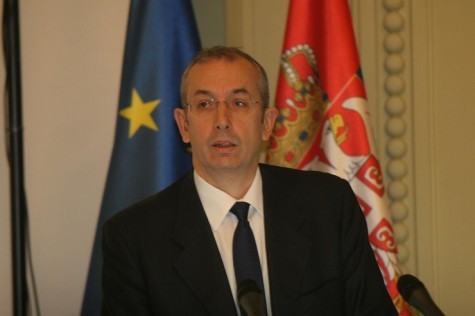Research, Innovation and Technology Transfer project, implemented through cooperation between World Bank and Serbian Government, will be EU-funded with 2.5 million euros, said Head of the EU Delegation to Serbia Michael Davenport at the project launch held at Serbian Academy of Sciences and Arts.
Investing in applied sciences does not qualify as spending, but as every country’s investment in future, Davenport said, adding that allocation of 0,4 per cent of GDP for Serbian science was not only far from reaching the European aim of three per cent, but also far from the national aim set at one per cent.
Knowledge and ideas are the driver of economic competitiveness. In Serbia, it is necessary to improve science and research, as well as technological development at the level of companies. This will not be feasible, not without major efforts made by the State, said Davenport at project launch in SANU.
Seize the opportunity to develop your innovation potentials, open new markets for Serbian products, develop domestic companies and create jobs – this is what the EU is offering you assistance for, Davenport said.
The new project is a continuation of a project for which the EU had allocated more than eight million euros, six million of which had been in the form of grants for SMEs.
With World Bank and EU’s assistance, Serbia Innovation Fund has financed 53 SMEs so they could develop and apply their innovation, Davenport said.
He assessed that the project was important, not only for the future of scientific innovation, but also for economic development of Serbia and its competitiveness in general.
Joint contribution of Ministry of Education and Science of Serbia and Serbia Innovation Fund will amount to 4,4 million euros. I hope this will help Serbia to further improve innovation, as it is, along with research and development, the most important factor of competitiveness of any economy, Davenport said.
According to him, Serbia has already benefited from EU programmes through which it has received some 80 million euros aimed at scientific projects.
World Bank Country Manager for Serbia Tony Verheijen said the new project was “part of the process of moving away from the old system towards a new one that could help Serbia create highly valuable jobs.”




